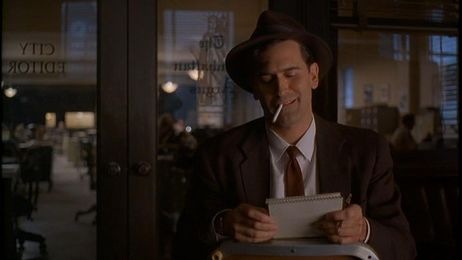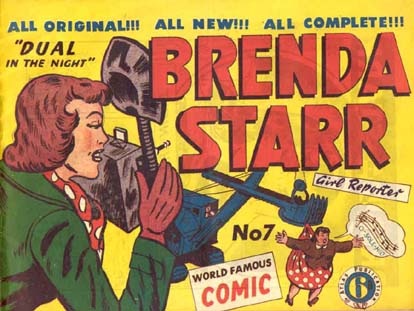As a daily reporter on the nerd media for over a decade, sometimes The Beat likes to sit back and take it all in. And of late there have been some telling moves that show how the nerd media/new media is putting the boots to the old media that STILL just Doesn’t Get It.
First there’s l’affaire Geoff Boucher. Boucher, one of the LA Times’ top entertainment reporters launched his Hero Complex blog in 2008, at the tail end of the Golden Age of Blogging. It started as a comics-focused site, and though comics stayed in the mix, over four years it grew into a brand that encompassed a film festival, magazines, and unparalleled access and content. If he wasn’t moderating the top panels at Comic-Con, Boucher was listening to Christopher Nolan confide details of his work that no one else knew, or gallivanting around to interview Johnny Depp or Jim Lee and so on. It was a top writer with great contacts and knowledge building up a brand.
And how did the LA Times reward him?
Oh by hiring an editor over their entertainment section who in just a few months managed to alienate Boucher to the point that after 21 years at the Times, he quit.
"The way it happened is not the way I had planned," Boucher admits. "I had an exchange with John Corrigan that changed my plan. I was going to sit tight until the creditors took over and see what happened and take 'Hero Complex' with me. But I had worked with so many good people for so long that I was not willing to work for a bad person. I'm a team player."
The LA Times, like most print newspapers, has been unable to make a transition to the internet age, and has been in financial trouble for a while. Still, you’d think they would want to keep something with that strong a following around, right? Wrong.
So where did Boucher go? Why to Entertainment Weekly, where he’s already been teasing that he’ll start a new Hero Complex. (I should note that the very able Noelene Clark is still doing a fine job at Hero Complex, but there is only one Geoff.)
Now EW is another very interesting case. Former staffers Nisha Gopalan and Marc Bernardin spearheaded EW’s adventures into comics about five or six years ago, when comics were getting reviewed in the book section, the website was running exclusive previews, and EW was just getting into Comic-Con and starting their epic party. But both these fine folks left for various reasons, and you’ll notice that EW hardly covers the comics source material at all any more. The annual Comic-Con issue usually has all of ONE story, if that, devoted to print comics. I wouldn’t say EW had become nerd unfriendly, but they have, in recent years, focused on all that non-nerd content (NNC) stuff like Dancing With the Stars. Not that NNC shouldn’t be covered—as hard as it is to believe, not everyone is a nerd or a geek—but it seems to have been at the expense of the stuff that the internet covers in minute detail around the clock. (I should note that staff writer Jeff Jensen is a big time comics lover—hell, he won an Eisner for a graphic novel he wrote, GREEN RIVER KILLER—but in the magazine and website he’s focused more on Lost and TV.)
So now EW has nabbed the King of Nerd Media,
And whaddaya know, they’re already interviewing Grant Morrison and Darick Robertson on their new Image book, HAPPY. I sense a change in the weather at EW for sure.
Meanwhile, there’s the case of Variety. This isn’t really a nerd media story, but it is an old media vs. new media story. I’m already on record with my problems with The Beat and Reed Business Information, the company that formerly owned Publishers Weekly, where The Beat was once housed.
Of everything that has happened in my career, RBI’s disinterest in growing their web traffic remains one of the most puzzling. Here was a major web initiative. Here was a proven successful site which doubled traffic and cost NEXT TO NOTHING — but support this cheap strategy? No way.
Having failed utterly to make the move into new media, Reed Business has gradually been selling off their trade magazine business at fire sale prices, including, two years ago, Publishers Weekly. At the time, they held on to the “jewel in the crown” Variety, a 100+ year-old showbiz trade magazine, but recently even that ceased to be profitable, with the content housed behind a firewall, a lame internet presence, and cutting out all the veteran writers for budget reasons.
Instead, Deadline.com, owned by entrepreneur Jay Penske, has become the Hollywood trade of choice. And now, with Variety’s price cut by 25%, and Reed financing the sale itself, who do you think has emerged as the likely buyer in a field of tepid interest?
Why, Jay Penske, who is said to be shelling out $30 million for the once esteemed brand.
Anne Thompson, a former Variety blogger with whom I sometimes shared frustrations, offers her insights on the potential deal.
The question is what Penske plans to do with Variety, a hidebound institution that until now has kept its distance from the kind of traffic-chasing economics that Penske lives by–he also owns Movieline, which has been trying to find its purpose, as well as Bonnie Fuller’s breathlessly lucrative celeb site HollywoodLife.
Penske Media would operate Variety, which is essentially occupying the same space as rival Deadline, which poached experienced trade vets Michael Fleming and Nellie Andreeva after Finke sold her blog to Penske in 2009. Penske bet on stars with talent–the opposite approach taken by Variety.
Thompson also offers this assessment of Hero Complex:
I continue to be astonished that the LAT was willing to let Geoff Boucher leave for a senior writer gig at EW, which will continue to promote his stardom as he pursues several entrepreneurial opportunities on the side. The LAT has already seen a precipitous traffic drop since Boucher left The Hero Complex blog, from over 100K page views a day to under 12K. Various in-house folks will fill in at the blog.
So what have we learned here?
Well, my own personal takeaway is that when change comes, even when you have people standing there yelling that you need to change…a lot of folks just can’t do it. I’m sure we all have our own threshold of obsolescence—mine is probably my hatred of Facebook, but perhaps I am being optimistic and I became obsolete a long time ago. Running a blog is not exactly cutting edge in 2012. On the other hand, I don’t have a property that was once worth 100s of millions of dollars that I essentially flushed down the drain, either.
On the other side of the equation there’s The Hollywood Reporter, another old moribund trade that has rebranded itself as a fast moving website and sometimes print product. I’m not sure how profitable THR is, but it’s still in the mix, and it looks modern and up to date. And of course there’s Deadline itself, which, no matter how rude and partisan founder Nikki Finke is, has hired a few key people and runs lean and fast. I don’t doubt that the people who write Deadline work themselves into the ground—just like I do—but part of moving forward is knowing that the olden days of giant expense accounts and one story a week are over.
And while Nikki says she “doesn’t do nerd,” nerd interests and subject matter are driving a large part of the entertainment business these days, from the comics on to the video games, and will be a part of any well-rounded coverage at any outlet. And the people who know what they’re doing are going to be the most successful at it. That sounds like simple, obvious advice, but you’d be surprised how many people don’t get it.










Nikki Finke, Perez Hilton manage to be both the story and bottom feeders. I’d rather read from blogger who are more interested in bringing their industry to their readers rather than finding ways to inject themselves into it.
When the reporter/blogger becomes the story, then it’s gone too far.
1) We are all geeks, just of different tribes (or wikis). Consider the online discussions following each episode of American Idol. Or the comments on Deadline.
Some of us make a living with our geekitude, crossing our interests with our skill sets.
2) The Internet allows for a variety of football fields. Don’t like who you’re playing with? Take your football (or readership) and find another stadium down the road. Or build your own.
Comments are closed.